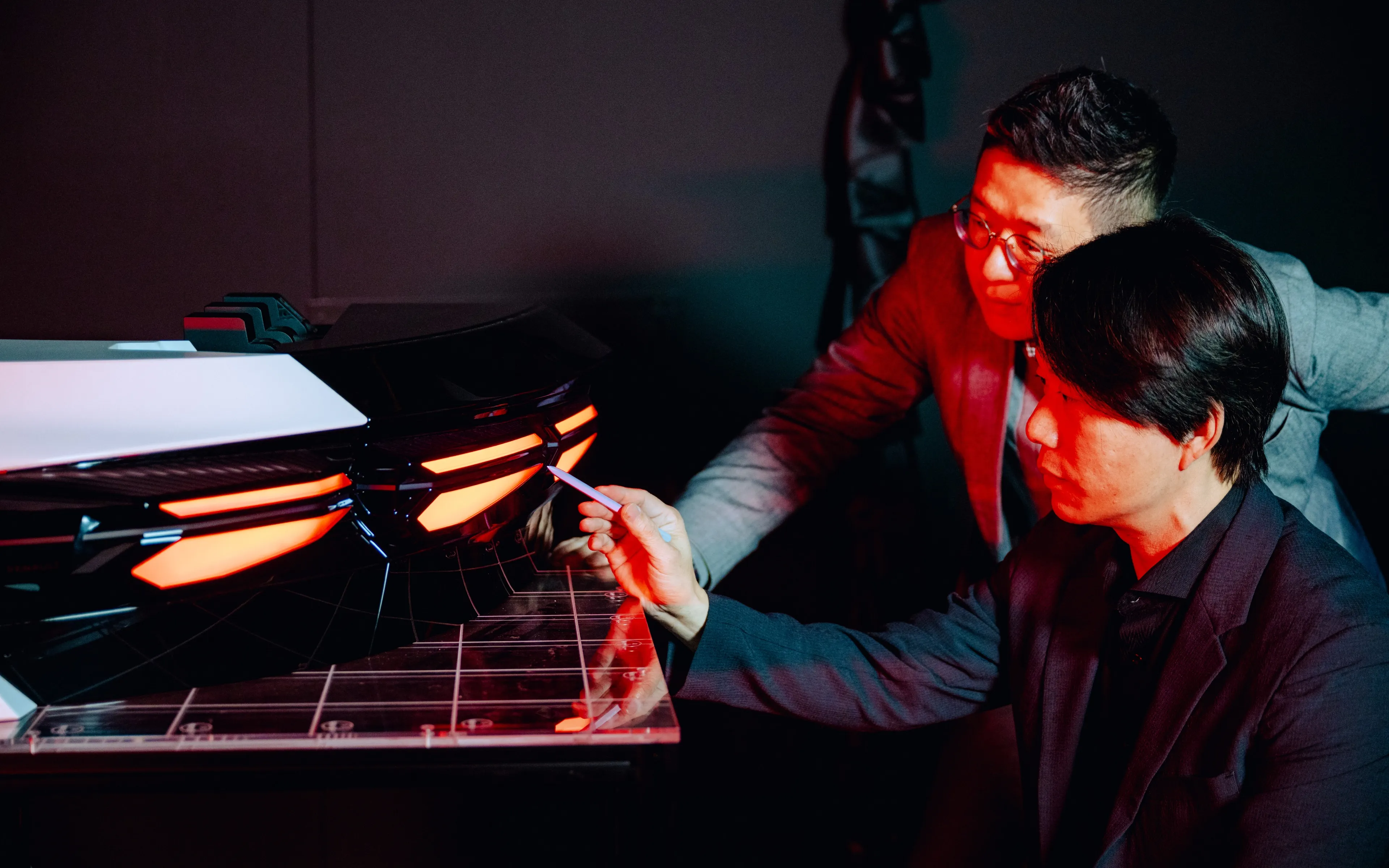Artificial intelligence and the automotive industry at the heart of our strategy
Published on

AI in action at Renault Group – Episode 1
This article launches a five-part series dedicated to artificial intelligence at Renault Group. From supply chain to customer relations, through engineering and products, AI applied to the automotive sector is profoundly transforming the company’s entire value chain.
Episode one focuses on manufacturing. In the Group’s plants, AI acts as a catalyst for performance. From the industrial metaverse to automated quality controls, it is redefining the relationship between humans and machines, bringing greater agility, speed and reliability. A revolution already underway within the Group, notably in Valladolid and Palencia (Spain).
From industrial metaverse to smart factories
Since 2016, Renault Group has undertaken an ambitious digital transformation of its industrial system, driven by one conviction: no AI without data. Today, nearly 90% of production lines are connected, generating more than 100,000 data points per second, equivalent to 5 billion data points per day across all plants.
This information feeds the industrial metaverse, a digital twin of the physical world. Acting as a true control tower, it enables real-time visualization of every operation, from stamping to final assembly, including quality checks. The benefits are clear: anomaly anticipation, shorter production times, reduced energy consumption (-26% between 2021 and 2024) and improved vehicle quality.
Far from being just a technological showcase, this industrial metaverse serves as a virtual assistant for teams. The collected data train models capable of simulating human experience and providing instant decision-making support.
Industrial AI: a trusted partner for operators
AI applied to manufacturing is not meant to replace humans: it acts as a work partner. On the shop floor, operators are at the heart of the algorithm learning process. They feed the models with their observations and use AI tools to focus on higher value-added tasks.
Take visual inspection as an example. In the past, operators spent 80% of their time detecting anomalies and only 20% correcting them. Today, alerted in real time by AI, they can reverse this ratio: 20% on inspection and 80% on action. To date, 15,000 employees have already been trained in artificial intelligence in the Group’s plants, clear evidence that human upskilling goes hand in hand with technological progress.
In Renault Group plants, operators recognize the benefits of AI: fewer repetitive tasks, greater autonomy and more added value. In practice, more than 3,000 AI-assisted inspections have already been carried out on production lines, including 500 at the Palencia plant, strengthening the reliability and quality of vehicles leaving the line. By transforming the human-machine relationship, AI gives new meaning to work while improving the reliability of delivered vehicles.
Discover the insights of Antoine Leblanc, AI & Data Production Engineering Expert, Gerardo Sanchez-Rodriguez, Head of Innovation at the Iberia Industrial Hub and Raquel Herrero González, Paint Quality Control & Repair Expert at the Valladolid plant.

More artificial intelligence for greater competitiveness
This industrial revolution is not only technical, it is strategic. Facing certain Asian competitors capable of developing a vehicle in just two years, Renault Group is accelerating. The goal: to halve the production cost of electric vehicles by 2027, reduce the number of parts per model (-40% between Mégane E-Tech electric and the future Twingo) and speed up development timelines.
Thanks to AI, Renault Group already achieved €270 million in savings in 2023 and cut its carbon footprint by 21,000 tons of CO₂ per year, notably through logistics and energy optimization. The ambition is clear: to massively deploy AI across all plants to prevent quality incidents, with a target of 1,000 AI-assisted inspections per plant by 2027.
But the transformation goes beyond numbers. By redefining factory organization, AI paves the way for a more agile, decarbonized and human-centered industry. It turns every data point into a lever for competitiveness.
A five-episode journey
Manufacturing is only one example among many. Artificial intelligence is already driving progress in the supply chain, customer relations, engineering and products. Each area benefits from concrete innovations that strengthen the Group’s competitiveness while enhancing the experience of both employees and customers. Next episode in the series: the supply chain.








